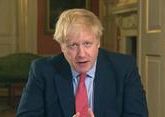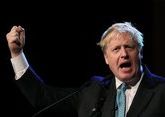Once again, people in London are protesting against Britain's exit from the European Union. There are new emotional debates in Parliament about life outside the EU. The matter went to the consideration of the bill, which, at least, will extend a deadline for Brexit past the current October 31 deadline. In any case, Parliament's mood gives every reason for this.
The split in British society, the range of views and the general situation is that we cannot exclude the possibility of a second referendum on the issue, which is crucial for Great Britain and the EU. If this trend continues, the referendum will be the third in a row. The first one took place in 1975, and then the mahority voted to stay the EU. In May 2016, the UK has voted to leave the EU by 52% to 48%.
An analysis of the composition of supporters and opponents of UK membership in the EU presents the following picture. Supporters of the Conservative Party, the kingdom's older population, low and middle-income earners advocate the exit. They argue their choice with the fact that leaving the EU will stop the influx of migrants, which will create jobs for the indigenous population.
This part of the population is opposed by young people, businessmen, intellectuals, workers in technology fields, and by political grounds - members of the Labour party. However, among the supporters of EU membership there are many conservatives, including MPs from the Conservative Party. They explain their choice by the fact that after Brexit young people from Albion will begin to move to mainland Europe, which, they say, is more promising for a career and money. And this is already showing up - as soon as there were complications between London and the EU, business has begun to change its "base of residence", preferring Germany, the Netherlands, and Belgium as such.
Brexit is fraught with another threat. Three "smaller" subjects of the kingdom - Scotland, Wales and Northern Ireland oppose it. Given the separatist sentiment in these parts of the UK, it may become a real headache for London after Brexit. At least in Scotland.
Scotland's ruling circles have warned quite harshly that Britain’s exit from the EU will "force" them to hold another referendum on Scotland leaving the UK. If we take into account that the separatists lost with a meager lag in the last such referendum, and according to other sources they did not lose at all, then the question of Great Britain's integrity can cause nothing but concern.
The EU would be happy to prevent the UK from leaving, but it has no official levers to influence the situation. It remains only to sigh with grief over the fact that the interstate alliance may lose the fifth or sixth economy of the world - the British one.
With all this, leaving the EU is not simple. A radical exit without intermediate agreements would inflict a devastating blow on the British economy, which is closely connected with the European one. In a way that, according to experts, it may cause a shutdown of dozens of British enterprises, and this would cause a surge in unemployment, a jump in prices and even a shortage of some goods. But a soft Brexit option turned out to be fraught with complex intra-parliamentary procedures, requiring a compromise between political camps - supporters and opponents of the exit. Often they cannot agree on the simplest issues. Therefore, the initial Brexit deadline, scheduled for March 29, 2019, was delayed to mid-April, then to the end of June, and now to October 31. And it’s possible that another decision to postpone the date can be made.
The current situation has already hit the reputation of Prime Minister Boris Johnson, who won the election as the leader of the Conservative Party, thanks to solemn and firm promises to withdraw the state from the EU no later than October 31. And probably it will hit him even harder and more painful. Today, Johnson says: if Parliament decides to postpone Brexit, he will propose to hold a snap election.
The situation is complicated, there are two scenarios. The first is that after the parliamentary majority wins, Brexit will be postponed again, the UK will hold a snap elections, or even a new referendum on leaving the EU. The second scenario: if the prime minister's supporters succeed, Brexit will probably take place on October 31. The Times, when analyzing the situation, predicted that a snap election, which is very risky for Johnson, as some conservatives joined the opposition, is a most likely option. There were clear warning signals on September 2, when the parliament actually banned him from abruptly breaking off relations with the EU.
The parliament decided to take the parliamentary agenda out of the government's hands and give it to parliament. Thus, the deputies, in fact, got a new opportunity to postpone the decision on Brexit.










